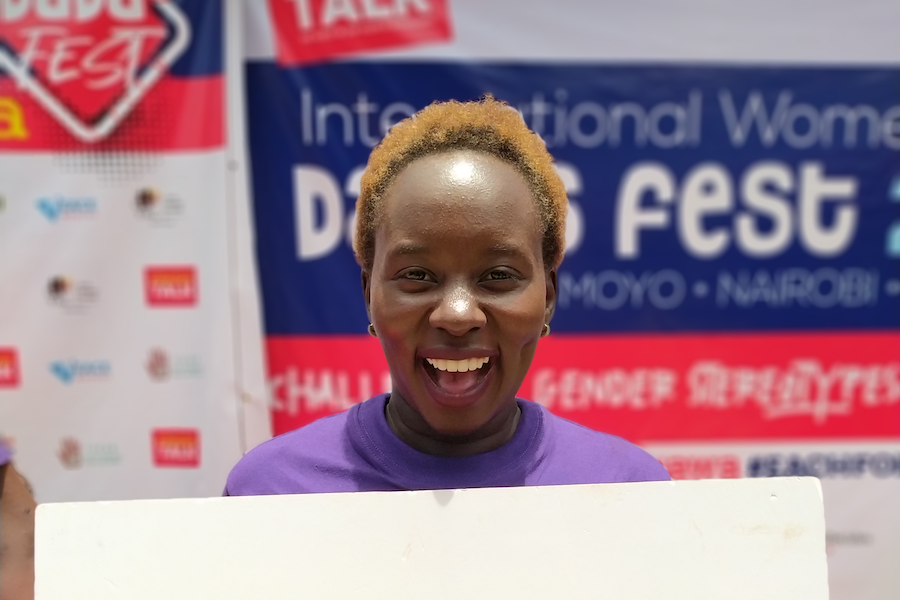“COVID19 means it’s even more important to break the cycle”
27th May 2020
Natalie Robi Tingo is an activist, Orchid Project Fellow, SheDecides Friend and Founder of Msichana Empowerment Kuria
Natalie lives and works in Kuria, a rural area of southern Kenya, where prevalence of female genital mutilation/cutting may be as high as 96%. Under the increasing pressure of a global pandemic, Natalie is continuing her work to empower girls by providing sanitary products and preventing FGM/C. This is despite the impacts of the COVID 19 crisis making drivers of gender inequality even more acute.
“COVID is making the situation in Kuria and Kenya more widely quite difficult. The economic impact of the crisis means that many families do not have enough to even get the basic necessities. The economic situation affects how girls are treated. For a girl nearing the traditional age of cutting, it means she is at greater risk because once she’s cut, she is considered ready for marriage, and so families can have a back up plan or social security to support their livelihood through the girl’s marriage.
Girls in a family where they cannot afford the basics are more likely to undergo FGM/C, more likely to go through child marriage, less likely to know how to control her menses, and more likely to get pregnant as a teenager. All these issues are tied together. Last year 100% of the girls in Kuria who were married off had been cut.
Where I am, calamities such as COVID often make cutting ceremonies of girls and boys much bigger because of the belief that we need to appease the gods. Usually, the cutting season starts around August, but I heard young men chanting just this last week, which signals that the elders have said the cutting season should begin already.”

The issues girls are facing in Kuria are being heightened by the COVID crisis, making Natalie’s work as an activist and providing support and access via Msichana Empowerment Kuria all the more vital.
“We are keeping our office open. We are an important part of the community and we need to keep hope alive in times like these. Girls can come and talk to us, get sanitary towels and report issues of gender-based violence. We also have our community health volunteers who are reporting cases and asking law enforcement to follow up. This is all we can do at the moment under the COVID restrictions.
We are staying open because it’s more important than ever to break the cycle. If a girl is provided with sanitary towels, that can stop her trading sex for a pad. If we break cycle of undergong FGM/C, the risk of child marriage slowly goes away.
Under COVID, the global conversation has been about ‘how do we use technology to mitigate these things.’ But many of the girls we work with are not online. We need to strengthen the systems we already have. Make services affordable and accessible, and ensure the community is responsive.”
How does Natalie keep going under such difficult conditions? To her, there is no other option.
“Everyone deserves a chance. If a girl has a chance by having a sanitary pad or not having FGM/C, it will lessen her chance of going through something else.
We either take action or do nothing. I choose action.”

